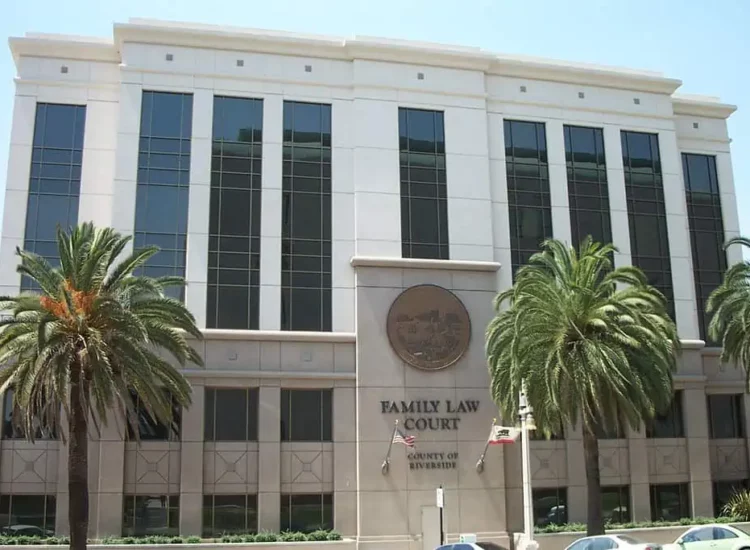Navigating the complexities of federal charges can be overwhelming for families. The stakes are high, and the consequences of a conviction can be life-altering. In such trying times, finding the best federal defense attorney becomes paramount. This guide aims to assist families in identifying the right legal representation, addressing their concerns, and providing actionable advice.
Toc
- 1. Understanding the Landscape of Federal Charges
- 2. Identifying the Right Federal Defense Attorney
- 3. Understanding the Financial Aspects of Legal Representation
- 4. Supporting Your Loved One During the Legal Process
- 5. Related articles 02:
- 6. Understanding Plea Bargains and Negotiations
- 7. Current Trends in Federal Defense
- 8. Conclusion
- 9. Related articles 01:
Understanding the Landscape of Federal Charges

Federal crimes differ significantly from state offenses, often carrying heavier penalties and more complex legal proceedings. Understanding what constitutes a federal crime is essential for families facing these challenges.
What is a Federal Crime?
A federal crime is any offense that violates federal laws or regulations. These crimes are prosecuted by federal agencies, such as the FBI or DEA, and can involve serious allegations, including drug trafficking, white-collar crimes, and violent offenses. The federal government has vast resources at its disposal, making these cases particularly daunting.
Types of Federal Offenses
Common federal crimes include:
- Drug Crimes: These encompass a range of offenses related to the illegal manufacture, distribution, or possession of controlled substances.
- White-Collar Crimes: This category includes fraud, embezzlement, money laundering, and other financial crimes typically committed for personal or business gain.
- Violent Crimes: Serious offenses such as bank robbery, homicide, and human trafficking fall under this umbrella.
Each type of offense carries different potential consequences, which can include lengthy prison sentences and substantial fines.
Differences in Sentencing Guidelines
Unlike state sentencing, which often allows for greater judicial discretion, federal sentencing is largely governed by the Federal Sentencing Guidelines Manual. This manual provides a structured framework for determining appropriate sentences based on the severity of the offense and the defendant’s criminal history. As a result, defendants can face significantly longer sentences in federal court compared to similar state-level offenses.
The Federal Justice System
Understanding the federal justice system is crucial for families navigating this landscape. Key stages in a federal criminal case include:
- Investigation: Federal agencies gather evidence and build a case over months or even years.
- Indictment: If sufficient evidence is found, a grand jury will formally charge the accused.
- Trial: The case is presented in court, where a judge or jury determines guilt or innocence.
- Sentencing: If convicted, the judge imposes a sentence based on federal guidelines.
- Appeal: The convicted party may appeal the decision, seeking a review of the case.
Knowing these stages helps families understand what lies ahead and the importance of securing a knowledgeable federal defense attorney.
Identifying the Right Federal Defense Attorney
Choosing the right legal representation can significantly impact the outcome of a case. Families should consider various factors when searching for the best federal defense attorney.
Key Qualities to Look For
When searching for a federal defense attorney, look for the following qualities:
- Experience: A seasoned attorney who has handled federal cases similar to your loved one’s is invaluable. While experience is valuable, it’s not the sole determinant. A less experienced but highly skilled and dedicated attorney with a strong understanding of the relevant law may be equally effective, potentially offering more personalized attention.
- Expertise: An attorney should have a deep understanding of federal laws relevant to the specific charges.
- Proven Track Record: Look for attorneys with a history of successful case outcomes in federal court.
- Strong Communication Skills: Your attorney should be able to clearly explain the legal process and keep you informed.
- Compassion: Families face significant emotional distress; a compassionate attorney who offers understanding and support can make a crucial difference.
Where to Find Federal Defense Attorneys
Families can explore various resources to find qualified federal defense attorneys:
- Online Legal Directories: Websites like Avvo or Martindale-Hubbell provide lists of attorneys by practice area and location.
- Referrals: Ask other attorneys for recommendations, especially those who specialize in different areas of law.
- Bar Associations: Many state and local bar associations have referral services that can connect families with qualified attorneys.
Checking Disciplinary Records
Before making a decision, it is also important to check an attorney’s disciplinary record with the relevant state bar association. This can provide insights into the attorney’s professional conduct and any past issues that may be concerning.
When searching for the best federal defense attorney near Arizona or Colorado, consider regional expertise and familiarity with local federal courts.
Vetting Potential Attorneys
Once you have a list of potential attorneys, vet them carefully. Consider asking the following questions during initial consultations:
- What is your experience with cases similar to mine?
- How do you structure your fees? (Inquire about the federal criminal defense lawyer cost)
- What is your communication style? How often will I receive updates?
- What is your approach to this case?
Utilizing federal lawyer websites can provide additional insights into an attorney’s background and client reviews.
Weighing the Pros and Cons of Different Attorney Types
Families must also consider the type of attorney they wish to hire. Solo practitioners may offer personalized attention, while larger firms may provide a broader range of resources and expertise. Understanding the advantages and disadvantages of each can help families make informed decisions.
Understanding the Financial Aspects of Legal Representation
Legal representation in federal cases can be expensive. Understanding the costs involved will help families plan accordingly.
Fee Structures
Federal defense attorneys typically charge through one of several fee structures:
- Hourly Rates: Many attorneys charge a set hourly rate for their services. This can add up quickly, particularly for complex cases.
- Flat Fees: Some attorneys may offer a flat fee for specific services or for handling an entire case.
- Contingency Fees: Although less common in criminal cases, some attorneys may work on a contingency basis, taking a percentage of any recovery or settlement.
Exploring Payment Options
Several factors can impact the overall cost of hiring a federal defense attorney:
- Complexity of the Case: More complicated cases may require additional resources and time, leading to higher fees.
- Attorney’s Experience: More experienced attorneys may charge higher rates due to their expertise.
- Location: Legal fees can vary significantly depending on the attorney’s location.
Potential for Pro Bono Representation
For families who cannot afford legal representation, exploring options for pro bono representation or reduced fees through legal aid organizations can be crucial. Many attorneys offer their services at reduced rates or for free to indigent defendants, making legal representation more accessible.
Utilizing Free Consultations
Many federal defense attorneys offer free consultations. Families should take advantage of these opportunities to discuss their case, learn about potential fees, and understand the attorney’s approach. This is a crucial step in assessing whether an attorney is the right fit.
Budgeting for Legal Expenses
Managing legal expenses is essential for families facing federal charges. Consider the following tips:
- Create a Budget: Outline all potential legal costs and develop a budget that includes attorney fees, court costs, and any additional expenses.
- Explore Payment Plans: Some attorneys may offer payment plans to help families manage costs.
- Seek Financial Assistance: Families can explore options for financial assistance, including loans or grants specifically designed for legal expenses.
Supporting Your Loved One During the Legal Process
While legal representation is critical, emotional and practical support from family members can significantly impact the accused’s experience.
Emotional Support
Facing federal charges is a harrowing experience, and emotional support from family is vital. Families should:
3. https://elizacosmetic.vn/mmoga-best-attorney-for-workers-comp-in-maryland/
5. https://elizacosmetic.vn/mmoga-finding-the-best-lawyer-to-sue-a-company/
- Stay Connected: Regular communication can help alleviate feelings of isolation.
- Encourage Open Dialogue: Allow the accused to express their feelings and fears without judgment.
- Practice Self-Care: Family members must also take care of their mental health during this stressful time.
Practical Support
Families can provide practical support in various ways, including:
- Attending Court Hearings: Showing up for court dates can provide encouragement and demonstrate solidarity.
- Maintaining Regular Contact: Keeping in touch through phone calls or visits can help the accused feel less alone.
- Providing Assistance: Helping with daily tasks can alleviate some of the burdens associated with legal challenges.
Communication Strategies
Effective communication with the accused and their legal team is crucial. Families should:
- Be Honest and Open: Maintain transparency about feelings and concerns.
- Establish Boundaries: Discuss what topics are off-limits to ensure everyone feels comfortable.
- Encourage Dialogue with the Attorney: Remind the accused to maintain regular communication with their legal counsel.
Accessing Resources
Families facing federal charges can benefit from various resources:
- Support Groups: Many communities have support groups for families dealing with legal issues.
- Legal Aid Organizations: These organizations can provide valuable resources and assistance.
- Mental Health Services: Professional counseling can help families cope with the emotional stress of federal charges.
Understanding Plea Bargains and Negotiations
Plea bargaining is a common practice in federal cases, and understanding this process is essential for families.
What is a Plea Bargain?
A plea bargain is an agreement between the defendant and the prosecutor, where the defendant pleads guilty to a lesser charge in exchange for a lighter sentence or other concessions. This process can expedite legal proceedings and often reduces the uncertainty of a trial.
The Role of the Defense Attorney
A skilled defense attorney is crucial during plea negotiations. They can advocate for the best possible outcome and ensure that the accused understands the implications of accepting a plea deal. Families should encourage their loved ones to discuss all options with their attorney.
Counterarguments on Plea Bargains
However, plea bargains can also be disadvantageous. A defendant might plead guilty to a crime they didn’t commit to avoid a harsher sentence, resulting in a wrongful conviction. The pressure to accept a plea deal, especially when facing overwhelming evidence or lengthy incarceration, can lead to unjust outcomes.
Assisting in Decision-Making
Families can play a supportive role in helping their loved one make informed decisions about plea bargains. Consider the following:
- Discuss the Pros and Cons: Help the accused weigh the benefits and drawbacks of accepting a plea deal versus going to trial.
- Understand the Legal Implications: Ensure that the accused fully comprehends the terms of any plea agreement and its long-term effects.
- Encourage Open Communication: Facilitate discussions between the accused and their attorney to address any questions or concerns.
Current Trends in Federal Defense
As the legal landscape evolves, families should also be aware of current trends that may impact their situation.
The Increasing Use of Technology
The increasing use of technology in federal investigations and trials is a significant contemporary development. Digital evidence, including emails, social media activity, and electronic records, plays a central role in many federal cases. Remote hearings have also become more common, changing how cases are presented and managed. Families should discuss with their attorneys how these trends may affect defense strategies and case outcomes.
Conclusion
Finding the best federal defense attorney is a critical step for families facing the challenges of federal charges. By understanding the legal landscape, identifying qualified attorneys, managing costs, and providing emotional support, families can navigate this difficult journey more effectively. Seeking early legal counsel is paramount, and families are encouraged to take immediate action by reaching out to qualified federal defense attorneys for a free consultation. With the right support and resources, families can better advocate for their loved ones and work towards the best possible outcomes in their cases.
3. https://elizacosmetic.vn/mmoga-finding-the-best-lawyer-to-sue-a-company/
5. https://elizacosmetic.vn/mmoga-best-attorney-for-workers-comp-in-maryland/










